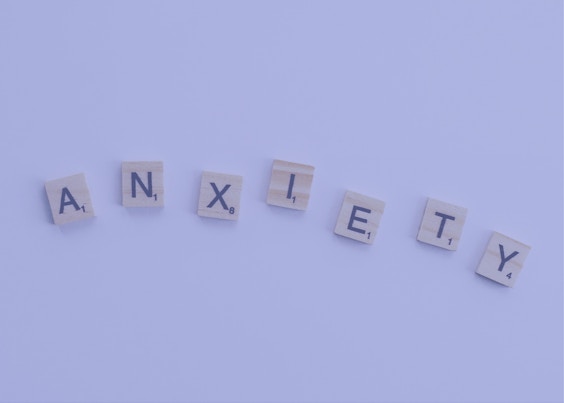I Am Sober is a free app that helps you get some control back in your life.

What to do when your partner still drinks?
Last Updated: Tue, January 23, 2024There's a reason why many programs, rehabilitation centers, and psychologists discourage dating when you're recently sober. We'll go into detail why below, but for now, let's say you're in a committed relationship where your partner drinks and wants to continue to drink, but you are trying to focus on your sobriety. What can you do?
1. Communicate Clearly
People can get used to hiding their addiction -- some even do so successfully for decades while living with their loved ones. However, once you turn the corner and get sober, you need to communicate clearly.
Regardless of how long you've been with your partner, you need to be clear about your goals. What you hope to accomplish and what you need from them to be successful. If that means dining out less (due to the ambiance being a trigger), express so. If that means, no alcohol in the house, say something.
What's important is this isn't a one-and-done conversation. It needs to be open-ended. For instance, if your partner knows you're working through an alcohol addiction and agrees to not drink around you, that's great. However, if they start smoking pot more often and then you start to recognize it as a potential trigger, then you need to say something.
2. Focus On Your Triggers
As you get in touch with your emotions, you'll start to become more aware of what triggers cause a cravings. Keep a journal or use notes on your phone to recognize what makes your day harder or easier.
The I Am Sober App is one way you can do this at the end of each day as it'll notify you (at your convenience) and prompt you to answer what sorts of activities you participated in, how the day of sobriety went overall, while leaving it open-ended for you to provide details at the end of the day.
3. Find An External Sober Support System
If your partner still drinks and has no interest in sobriety of their own, that's their decision. Remember, you cannot control others emotions, only your own. However, something you need in this type of relationship is a sober support system. This isn't just a safety net, but an emotional outlet for people who can empathize with your struggles.
For couples working through one's sobriety, this can be life-changing (in a positive way). If you have a partner that supports you, but has an occasional drink or going out to drink is a big part of their lives, then this is frequently the best compromise. Your partner can go out with their friends and drink, and you can attend a meeting or sober group where you have your own set of friends.
One of the chief reasons this is so important for you in your sobriety is because, without it, you're more likely to feel isolated if your partner goes out drinking and you stay home.
4. Evaluate Your Partner
This is last so as not to imply that all relationships founded during an addiction are doomed to fail... many are, but not all. Regardless of how long you and your partner have been together, it's important that in your journey toward recovery, you evaluate what they add to your life and how they benefit you.
It's no surprise that rehab centers often tell addicts to move neighborhoods or cities and even retire their "drinking buddies." Not only are places and people possible triggers, but very often, the reason we hung around them was due to a shared interest in drinking or getting high. When you make the choice to get sober, many people appear differently. This applies to friends and family, but especially to loved ones.
People who may have seemed easy going may turn out to be high maintenance in a sober light; people who appeared to be fun, may actually be insensitive or cruel.
This isn't about criticizing someone else to ignore the problems and issues you need to work on for yourself, but genuinely considering what your partner adds and if it still makes sense in an awakened state.
Why you shouldn't date for a year
In the same way that it's a little too easy to substitute your addiction with something else, it's also very easy to substitute your addiction with time spent on another person. It's all too common to live in the euphoric, honeymoon phase which can function as a kind of high or rose-tinted look at your disorder.
Relationships can be a distraction from your personal journey. A key element of recovery is finding the reason you went down the path you did -- and what brought you to the place where you want to get better. It's an intimate journey and when you throw another person in the mix, it's easy to get off track. Not only is there the euphoric early parts of a relationship to consider, but it can also put you in a false sense of security with your addiction. In new relationships, people often put their best foot forward, presenting their idealized selves. The problem with that is when the facade fades and real issues arise, the personal progress has not been made. When a relationship struggles, it can leave those in recovery feeling like they've failed their partner and themselves. Very often this can be a trigger for relapse.
Relationships and people are chaotic and emotionally unstable. So much of sobriety is rebalancing the chemicals in your brain and when you add another person in the mix, it can get out of hand, fast.
Sobriety is about you, not them
One of the the elements you should put at the forefront is "how does this relationship serve you?" It no doubt sounds selfish, but recovery -- in many ways -- is about self-discovery. Alcohol and depressants bury your emotions, numbing your personality. Stimulants manufacture happiness a fake range of emotions. In sobriety, you reopen your eyes to the world around you. It's about recognizing who you are; discovering what you feel like. If you have a relationship that's going to anchor you to your old self or doesn't want you to discover yourself then you should ask yourself how the relationship serves you.
Some can self-medicate while others abuse substances. Some practice self-love while others find themselves in abusive relationships. Consider how it benefits you, then decide if it's something you want to work on.
I Am Sober is a free app that helps you get some control back in your life.




